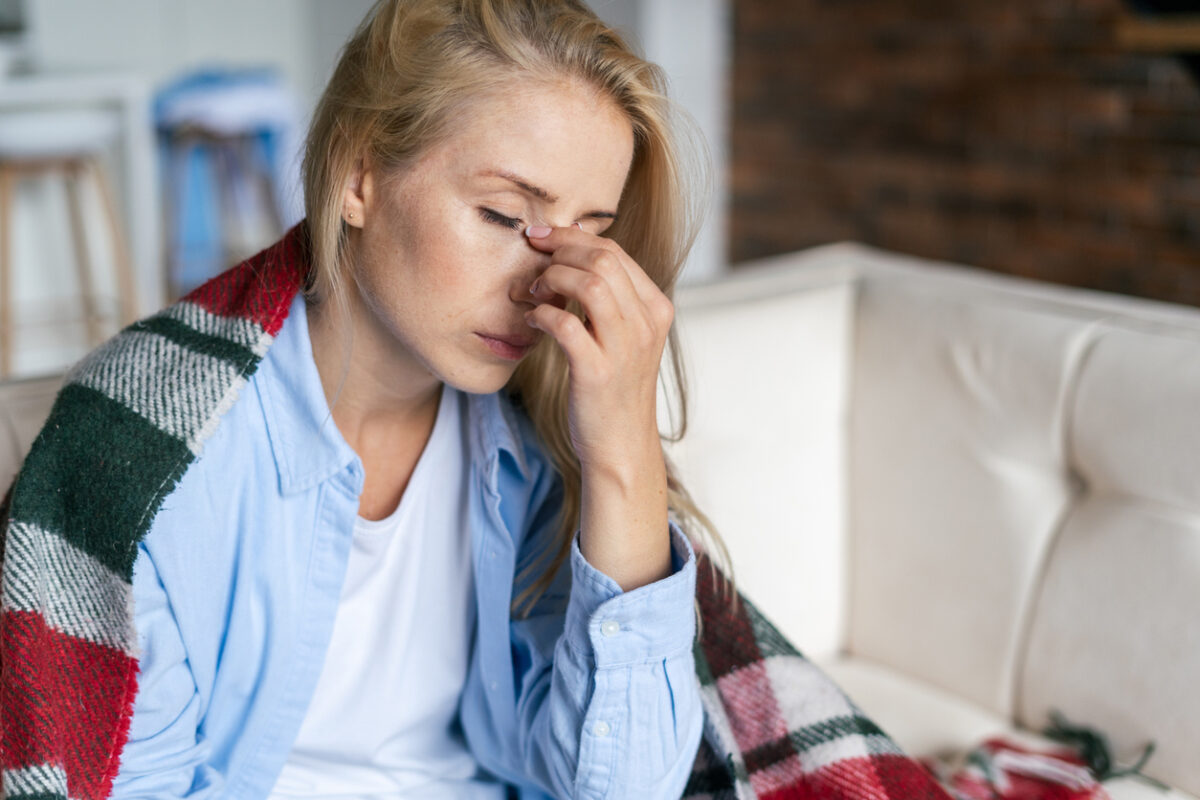Approximately 70% of menopausal women suffer from “menopause and fatigue”.
What are your symptoms?
After strenuous exercise or long periods of backbreaking work, we all feel tired and lethargic. However, it usually goes away with rest and sleep. However, women in the menopausal generation may feel tired all the time. Hobbies and small errands that you used to enjoy are not enjoyable for you any more. “I don’t want to do them,” “It’s troublesome to meet people,” and “It’s a hassle to go out.” It leads to a decrease in motivation and energy, depression, and irritability. There are many things around the menopause and fatigue.
What is the cause?
As women age, their ovarian function declines, and estrogen (female hormone) levels drop sharply. A part of the brain, the hypothalamus, controls the secretion of estrogen. But it can’t make the body secrete estrogen no matter how many commands it issues. Eventually, it confuses the hypothalamus. In this way, the brain and body become unbalanced due to hormonal imbalance during menopause. (About five years before and after menopause). Menopause is when the body and brain work hard to restore this imbalance. It causes hot flashes (hot flashes, hot flashes, sweating), coldness, stiff shoulders, dizziness, ringing in the ears, headaches, depression, and anxiety. A variety of emotional and physical disorders can occur.
In addition, menopause is also a time of significant changes in life, such as increased work responsibilities, nursing care for parents, and independence for children. These stresses in life can be a burden on the mind and body without knowing it. Most people will recover after menopause, so it is essential to spend time in a “slow rhythm” without blaming yourself or worrying that you may be lazy for not being able to care for yourself properly. Menopause and fatigue is a natural issue. Also, during this period, physical strength declines, and health changes are significant, so it is crucial to keep in mind healthy habits that you can do without overdoing them in your daily life, such as eating and exercise.
Disturbance of autonomic nerves
*The hypothalamus in the brain controls the secretion of hormones, but at the same time, it also plays a role in adjusting the autonomic nervous system. In this way, when the hormones are imbalanced in menopause and the hypothalamus is confused, the balance of autonomic nerves is disturbed. The autonomic nervous system has active sympathetic nerves that work mainly during the day and parasympathetic nerves that work at night for relaxation. During menopause, the autonomic nervous system tends to be disturbed due to hormonal imbalance, but keeping regular routines and taking care of breathing will help adjust the autonomic nervous system.
Breathing stimulates the sympathetic nerves with inhaling and the parasympathetic nerves with exhaling. So it will put your body into sleep mode, that you take deep breaths while consciously exhaling slowly before going to bed. A good rest is essential to alleviate sluggishness and fatigue. Please be aware of this.
easy self-care against menopause and fatigue
Aglycon-type isoflavone has shown to have an effect similar to drinking estrogen. It is one of the great ideas to take supplements with this special isoflavone. Take supplements or get them from your diet.
(Juveriente®’s EFFISOY® is the only supplement to contain the Aglycon isoflavone outside Japan.)
It would be better to take vitamins that are effective against the issues from menopause and fatigue from well-balanced foods, such as vitamins B1, C, and E, in your daily diet.
Foods that contain a lot of each are as follows.
(Vitamin) B1: pork, eel, liver, brown rice
C: green and yellow vegetables (broccoli, red peppers, etc.), fruits (strawberries, lemons, etc.), potatoes (potatoes, sweet potatoes, etc.), green tea
E: Nuts (almonds, etc.), avocados, green and yellow vegetables (pumpkin, mulukhiyah, etc.), olive oil
If you continue to have only sharrow sleep, you won’t be able to get rid of fatigue enough, and you won’t feel well. Avoid being sleep-deprived by keeping moderate exercises and adjusting your daily rhythm.
Menopausal women tend to get tired quickly when their sleep is short because of the lack of estrogen.
Support from family and friends is also essential. It would be nice if people knew that menopause is easy to get tired and that they could feel free to talk about their worries. And ask for help with household chores when you need it.



